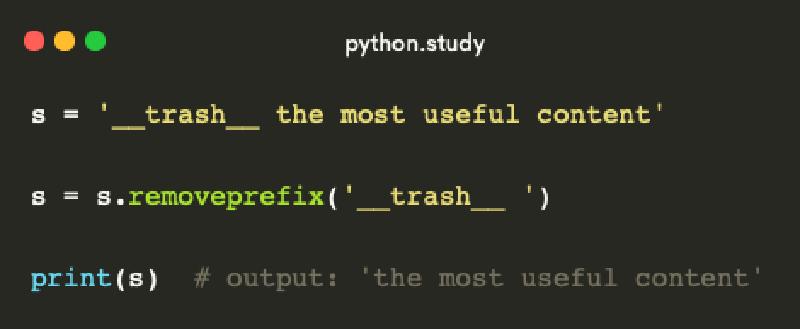Python 3.9 introduced two new string methods, removeprefix() and removesuffix(), for various string objects.
These methods remove a prefix or suffix (respectively) from a string, if present.
The reason for adding these two new methods is that the existing methods, str.lstrip and str.rstrip, often confuse users.
These methods remove leading or trailing characters, not substrings. This can lead to unintended removal of useful data.
For example, consider the following code:
s = '__trash__ the most useful content'
s = s.lstrip('__trash__ ')
print(s) # output: 'e most useful content'
In this case, not only was the prefix __trash__ removed, but also part of the useful data (th).
This is because lstrip removes all characters in the given set from the beginning of the string.
To avoid this, users had to write their own functions or use regular expressions, which can be difficult to read and may contain subtle mistakes.
The new methods removeprefix() and removesuffix() do exactly what their names suggest, making them more intuitive and easier to use.
Let’s rewrite the previous code snippet using the removeprefix() method:
s = '__trash__ the most useful content'
s = s.removeprefix('__trash__ ')
print(s) # output: 'the most useful content'
In this case, only the prefix __trash__ was removed, leaving the useful data intact.
If the prefix is not found, the original string is returned.
s = '__trash__ the most useful content'
s = s.removeprefix('__trash ') # the prefix is not found
print(s) # original string: '__trash__ the most useful content'
It’s worth noting that these new methods are available not only for str, but also for binary bytes and bytearray objects, and collections.UserString.
For more information, refer to the documentation for str or PEP 616.
